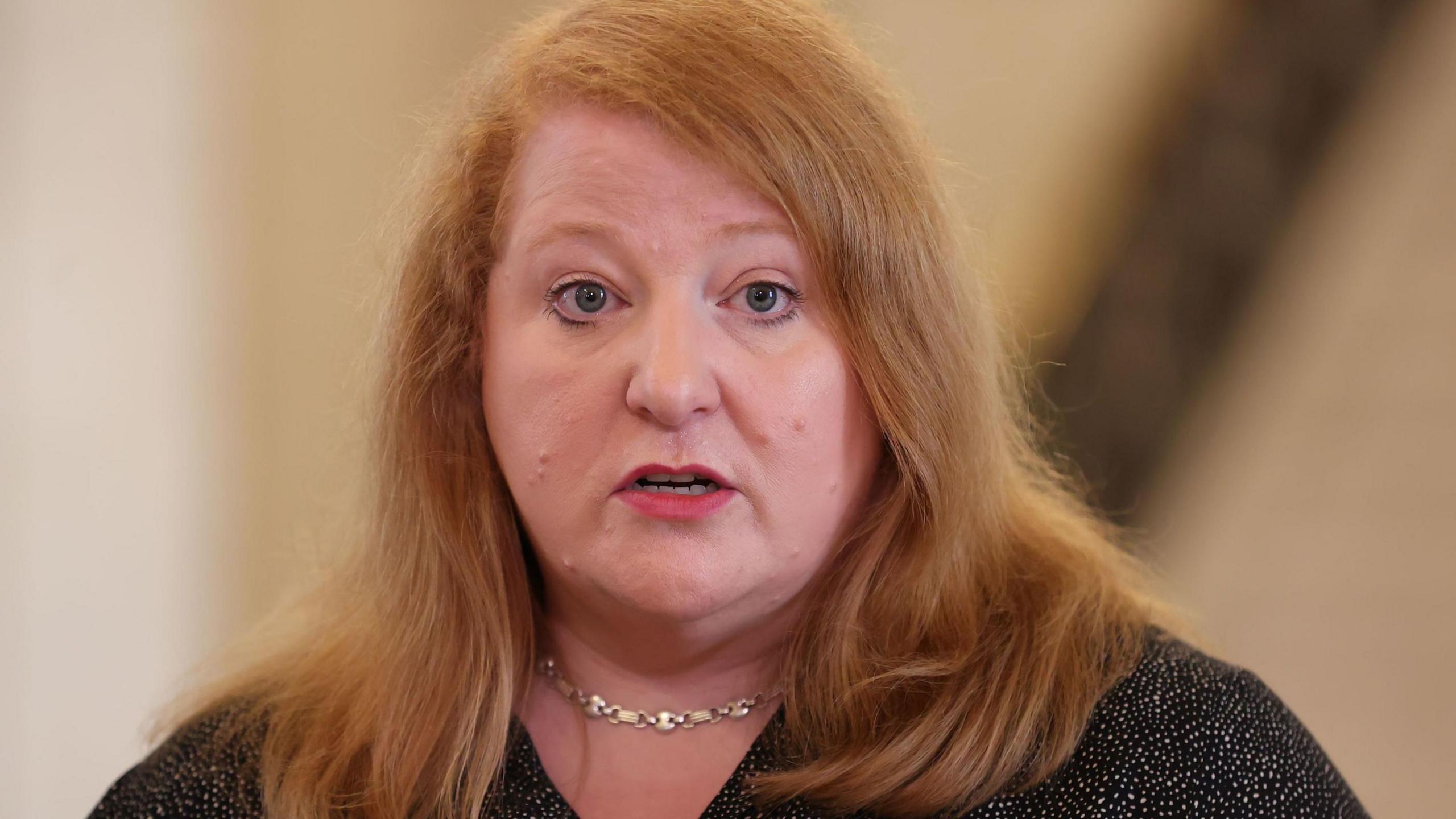Inquiry into police spying claims 'not ruled out'

Naomi Long said that any journalist who has been the subject of surveillance should be informed
- Published
Justice Minister Naomi Long has said she has not ruled out ordering a public inquiry into the alleged surveillance of journalists by the police in Northern Ireland.
A court is currently dealing with allegations that the Police Service of Northern Ireland (PSNI) was engaged in the practice and acted illegally.
Responding to questions in the Northern Ireland Assembly, the minister said she was concerned by reports of routine surveillance of journalists and lawyers.
“Journalism is not a crime and a free press if critical for a free society,” she said
Ms Long added that she had raised the issue with PSNI Chief Constable Jon Boucher and was told a further report is to be presented to the Policing Board next month.
Asked by the People Before Profit assembly member Gerry Carroll if she supported calls for a public inquiry, Ms Long said “I don’t want to rule anything in or anything out at this early stage".
But she added she “stands ready” if she is asked to take action following the outcome of the talks between the Policing Board and the PSNI.
The minister also said any journalist who has been the subject of surveillance should be informed.
The Policing Board raised concerns with the chief constable after claims the PSNI accessed the phones of journalists in an attempt to uncover sources.
A case is currently before the Investigatory Powers Tribunal in London.
It has been brought by investigative journalists Barry McCafferty and Trevor Birney who lodged a complaint after they were targeted in a police operation five years ago.
Mr McCafferty and Mr Birney had been arrested over the suspected theft of files from the Police Ombudsman's Office in 2018.
They had been working on a documentary about the Loughinisland killings in 1994.
The PSNI later unreservedly apologised for how the men had been treated and agreed to pay £875,000 in damages to the journalists and the film company behind the documentary.
The settlement came after a court ruled the warrants used by police to search the journalists' homes and Fine Point Films had been "inappropriate".